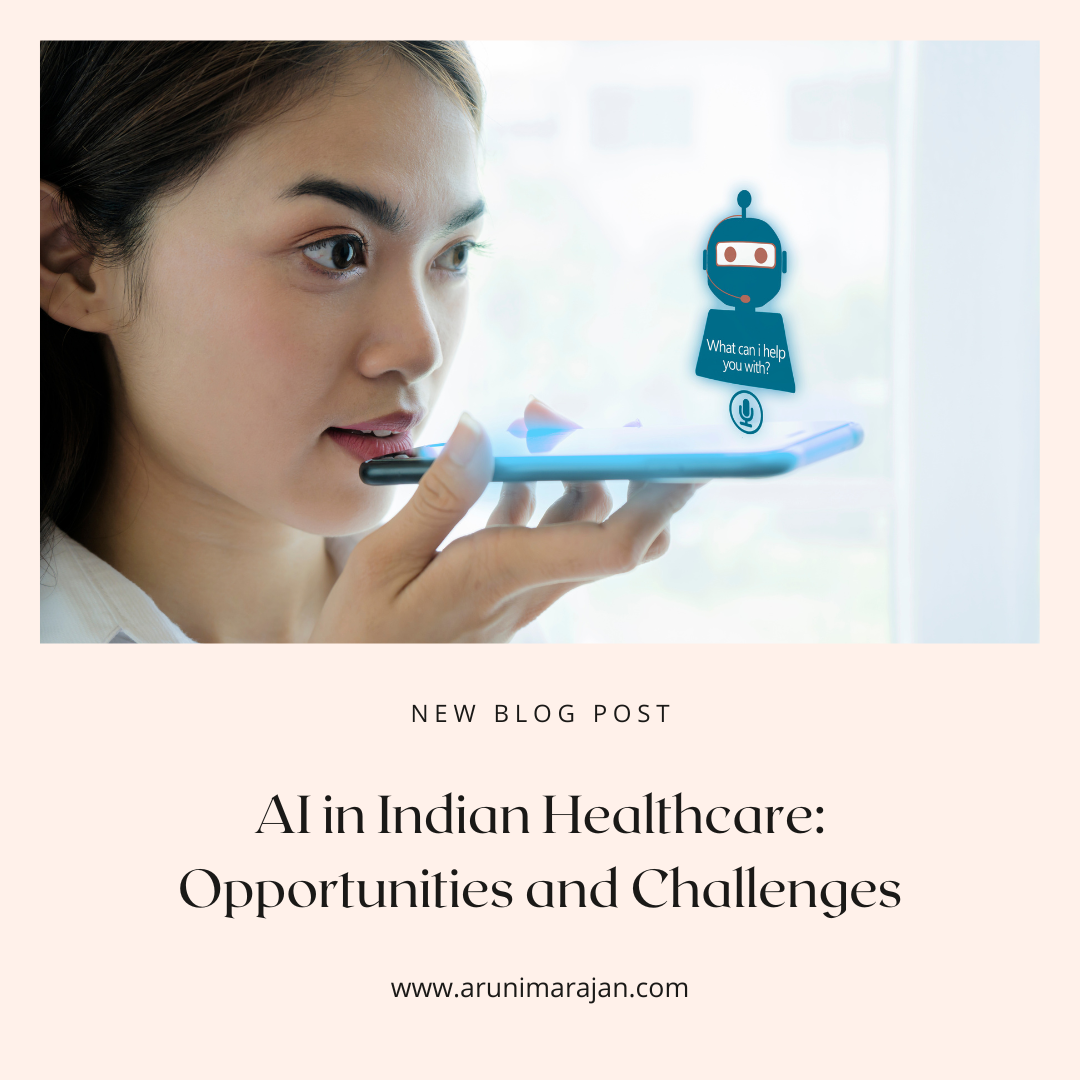
AI in Indian Healthcare: Opportunities and Challenges
Artificial Intelligence (AI) has already transformed many industries, revolutionizing the way processes are carried out and creating new opportunities. Now, AI is set to revolutionize the Indian healthcare landscape, providing powerful new tools to improve care and patient outcomes. The potential of AI in healthcare is immense, providing the possibility of cost reductions, enhanced diagnostics, improved patient engagement, and more efficient operations. However, some challenges need to be overcome to ensure the full potential of AI is realized, such as data privacy, data security, and ethical considerations. This article will explore the opportunities and challenges of AI in the Indian healthcare landscape and how it can be used to create a better healthcare system.
Overview of AI in the Indian Healthcare Landscape
The Indian healthcare landscape is evolving from focusing on cost reduction and infrastructure building to a greater focus on the quality of care and patient outcomes. The introduction of AI in the Indian healthcare landscape will add to this evolution, providing powerful new tools to improve care and patient outcomes. AI will play an important role in the future of healthcare by improving diagnostics, reducing costs, engaging patients, and enhancing operational efficiency. Some key areas where AI can improve healthcare include diagnosis, drug discovery, and personalized medicine. Diagnosis is a core function of healthcare and one where AI can deliver the most impact, helping clinicians to make faster and more accurate diagnoses. AI can enhance imaging diagnostics by providing a detailed analysis of an image in seconds, and it can be used to improve the accuracy of radiological diagnoses. AI can also improve the accuracy of text-based diagnoses, such as those made by clinicians through an EHR, by using Natural Language Processing (NLP) to identify patterns in doctor’s notes and flag anomalies. AI can also play a role in drug discovery, speeding up the process of finding new drugs and increasing the number of successful discoveries. AI can be used to analyze large amounts of data from patients, clinical trials, and genomics to identify trends in disease progression and the effectiveness of treatments.
Opportunities of AI in Indian Healthcare
Improved Diagnostics – AI can greatly enhance diagnostics by helping clinicians make faster and more accurate diagnoses through image recognition and natural language processing. This is especially important in rural and semi-urban India, where there is a shortage of medical specialists, and in paediatrics, where clinical expertise needs to be carefully matched to a child’s stage of development. – Cost Reduction – AI is already helping to reduce costs in areas like reducing drug spending. With the growing adoption of AI in healthcare, we can expect costs to be further reduced through improved operational efficiency. AI can help providers with administration and scheduling, increasing productivity through reduced paper use and errors. – Improved Patient Engagement – Patient engagement is important in improving outcomes, especially in chronic conditions where timely, appropriate care is critical. AI can help patient engagement by providing better, more personalized care through EHRs. AI can also help with health discovery, which involves engaging patients in their health and helping them understand their risks and options.
a. Improved Diagnostics
Healthcare providers need to make accurate diagnoses, which can be difficult in areas with a shortage of specialists and high uncertainty. AI can help with diagnostic imaging, providing a detailed analysis of an image in seconds and helping to detect abnormalities accurately. AI can also improve the accuracy of radiological diagnoses by up to 30%, which is critical for identifying cancers. It can also improve the accuracy of text-based diagnoses, such as those made through an EHR, by using NLP to identify patterns in doctors’ notes and flag anomalies.
b. Cost Reduction
AI is already helping reduce costs in areas like reducing drug spending. With the growing adoption of AI in healthcare, we can expect costs to be further reduced through improved operational efficiency. AI can help providers with administration and scheduling, increasing productivity through reduced paper use and errors. It can also help with predictive maintenance, which has been shown to reduce downtime by up to 25%.
c. Improved Patient Engagement
Patient engagement is important in improving outcomes, especially in chronic conditions where timely, appropriate care is critical. AI can help with patient engagement through better, more personalized care through EHRs. AI can also help with health discovery, which involves engaging patients in their health and helping them understand their risks and options.
d. Enhanced Operational Efficiency
AI can help with many administrative tasks that consume a significant amount of a provider’s time, allowing them to focus on their core clinical activities. AI can help with scheduling appointments, routing patients to providers, and scheduling and attending meetings. It can also help with revenue cycle management, increasing the speed of claims processing and reducing the number of claims denials.
Challenges of AI in Indian Healthcare
Challenges for AI in Indian healthcare can be compared to a labyrinth, with many twists and turns, and no clear path to success. Like navigating a labyrinth, implementing AI in Indian healthcare requires traversing through a complex system of regulations and cultural beliefs. Just as a labyrinth has many hidden dangers, there are also potential risks with implementing AI in healthcare, such as privacy concerns and the potential for bias. However, like a hero in a classic tale, AI has the potential to be a powerful tool for good in Indian healthcare, helping to improve patient outcomes and streamline processes. But in order to achieve this, one has to be aware of the complexity of the challenge and the cultural context. Similar to the hero in a story facing a dragon to save the princess, AI in Indian healthcare must overcome obstacles and challenges to reach its ultimate goal of improving patient care.
c. Ethical Considerations
One of the current trends in healthcare is the increasing use of artificial intelligence (AI) in various aspects of the field, such as diagnostic imaging, drug development, and patient monitoring. This trend is driven by the availability of large amounts of medical data, advances in machine learning and natural language processing, and the increasing affordability of AI-based technologies.
One supporting point for this trend is the growing availability of electronic health records (EHRs), which provide a vast amount of data that can be used to train AI algorithms. This data can be used to identify patterns and insights that may not be immediately apparent to human analysts, potentially leading to more accurate diagnoses and better treatment outcomes.
As AI becomes more integrated into healthcare, it is important to consider the ethical implications of its use. One potential concern is the potential for bias in AI algorithms, as they are only as unbiased as the data they are trained on. If the data used to train an AI algorithm is biased, the algorithm will also be biased. Additionally, there is a risk that AI-based technologies may be used to replace human decision-making, potentially leading to a loss of jobs and expertise in the healthcare field.
One resulting point is that it is important to consider the ethical implications of AI in healthcare and to take steps to address any potential biases or negative consequences. This may include developing guidelines for the use of AI in healthcare, creating oversight mechanisms to ensure that AI is being used in an ethical manner, and investing in research to better understand the potential consequences of AI in healthcare.
Another resulting point is that it is important to ensure that AI-based technologies are used to complement and enhance human expertise, rather than replacing it. This may involve investing in training and development programs for healthcare professionals, to ensure that they are able to effectively use and interpret the insights provided by AI-based technologies. By considering these implications and taking steps to address them, we can ensure that AI is used in a way that benefits patients and the healthcare system as a whole.
The Way Forward
In conclusion, the use of AI in the Indian healthcare landscape presents a wealth of opportunities to improve patient outcomes and reduce costs. From improving diagnostic accuracy to streamlining drug discovery, the potential benefits of AI in healthcare are vast. However, as with any new technology, there are also challenges that must be addressed. Data privacy and security concerns, lack of understanding of the technology, and limited access to data and resources, are some of the challenges that need to be overcome in order to fully realize the benefits of AI in the Indian healthcare system. It is important for healthcare providers, policymakers, and technology companies to work together to develop solutions that address these challenges and maximize the benefits of AI for patients in India. As the field of AI continues to evolve, it will become an increasingly important tool in the Indian healthcare landscape, and it is crucial that we take the necessary steps to ensure that it is used to its fullest potential.





3 Comments
Pingback:
Pingback:
Pingback: